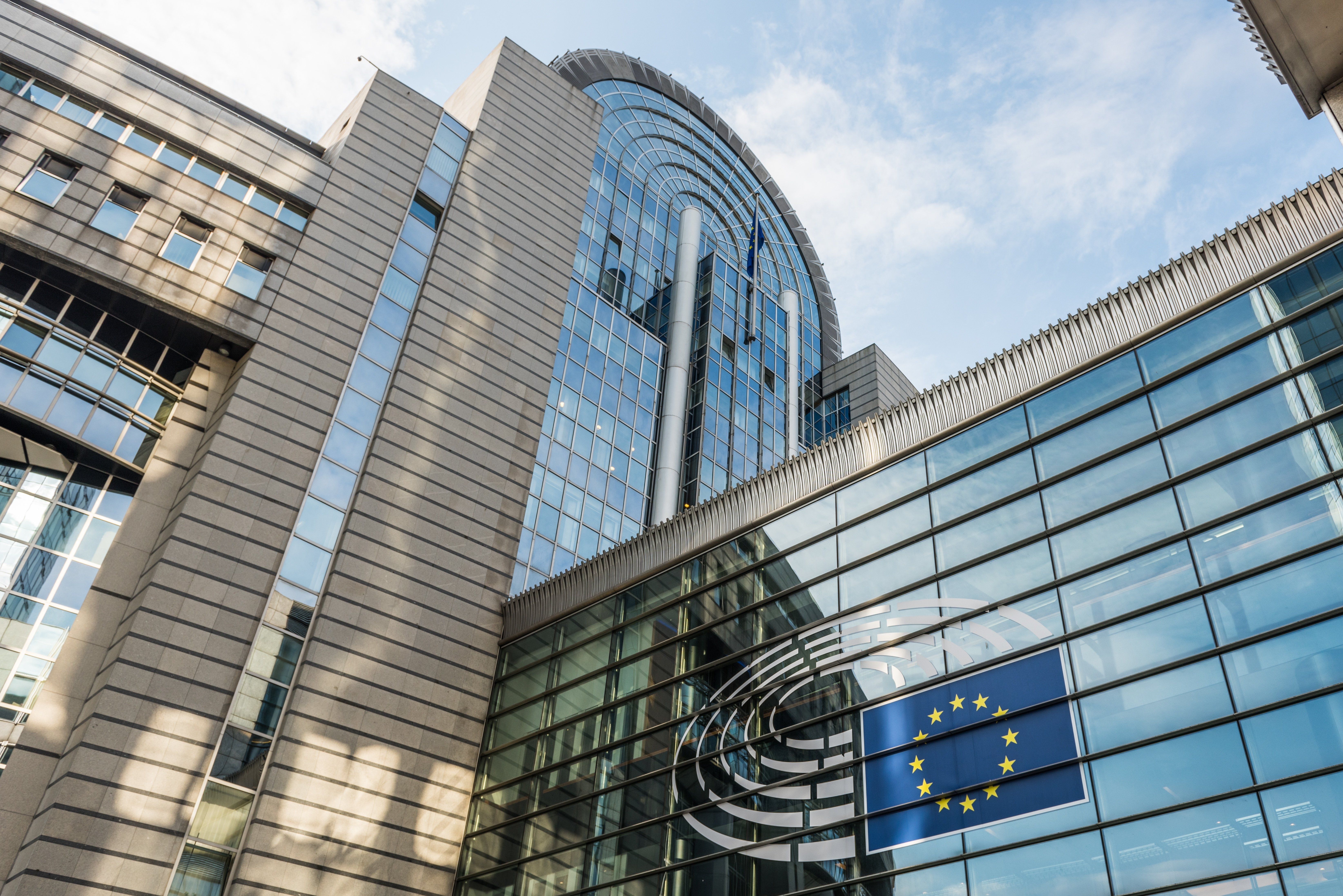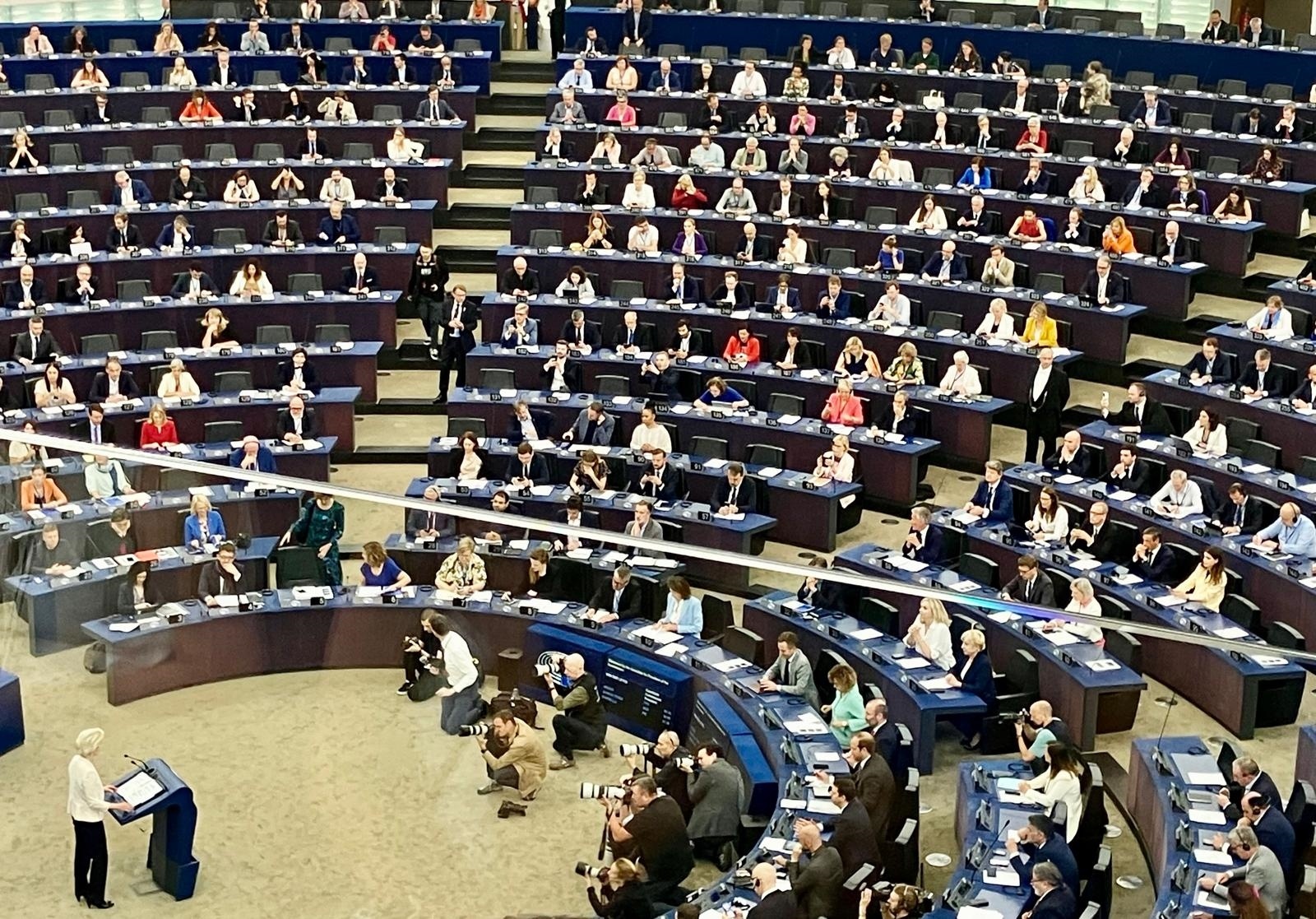The political agendas driving reform of competition policy
by Inline Policy on 29 Apr 2019
A new report by the European Commission sets out recommendations for how EU competition policy should be reformed, drawing on concerns of Governments and senior politicians. With the debate moving beyond economic theory to become increasingly political, it’s one that all companies in the tech sector will need to keep an eye on.
Within the EU context the political side of the debate has tended to centre around two points: the rise of multinational tech platforms and the introduction of more protectionist policies in some major international markets. Whilst politicians are claiming to support open and competitive markets, they are increasingly calling for special treatment for EU companies or specific measures to target non-EU players.
The report’s experts suggest principles as a starting point for reform
The report delivered to the European Commission on “Competition policy for the digital era” sets out principles and ideas to contribute to a growing field of opinions in a technical debate among competition authorities, academia and experts over how EU competition policy should be reformed to meet the demands of the 21st century. The report’s recommendations include:
- The underlying goals of competition policy are adequate, but methods and standards used by regulators should be revisited, including consumer welfare, market power and market size definitions.
- The importance of data in driving competition should be understood and the possibility of data pooling and data sharing explored as methods to keep markets open.
- Mergers and acquisition scrutiny should be heightened for dominant platforms, alongside a reassessment of theories of harm in cases to capture the future potential of start-ups.
- Inter and intra-platform competition should be promoted though policies aimed at curbing the practices of certain online platforms(eg. ‘Most Favoured Nation’ clauses), encouraging the possibility of switching between platforms, and requiring dominant platforms to have a responsibility to operate objective marketplaces.
- Competition law should act as a “background regime” complemented by sector-specific or issue-specific policy and legislation.
The report to the European Commission was delivered against a backdrop of work being done by Member States, who are commissioning similar studies to gather ideas on how rules may need to be changed. To pick some examples, the German Government has established a ‘Competition 4.0 Commission’ to produce recommendations for digital competition rules which are expected this autumn. Meanwhile the UK has received an expert report of it own on ‘Unlocking digital competition’, known as the Furman Review.
Whilst there are differences in these pieces of work, this is an ongoing debate from which some commonalities are emerging over what changes could be made to properly govern the digital era. These have highlighted in particular the role of data in creating privileged positions, the scrutiny of online platforms and how tech mergers should be treated in future.
Governments and senior politicians set out their concerns
While there has been an emphasis on commissioning expert opinions, politicians are increasingly firing salvos into the debate, citing recent frustrations with the inability of competition policy to protect EU business from foreign competition and the effect that ‘big tech’ has in digital markets.
Global competition creating pressure on EU businesses
Increasingly there has been a perception that international competitors are gaining an unfair advantage over European companies in a way which EU rules cannot address. This shone through in the very public criticism of EU competition policy from French and German ministers after the blocking of a merger by the European Commission of the rival French and German rail companies, Alstom and Siemens.
The Ministers argued that the merger should have been allowed as there was a need for a ‘European rail champion’ to compete with major overseas (Chinese) companies in the sector. While this was a fairly predictable response, the ministers went a step further and issued a joint “Franco-German Manifesto for a European industrial policy fit for the 21st Century”. The manifesto included proposals for protections for EU businesses by allowing state aid to drive industrial development and revisions to merger guidelines to place more emphasis on competition at a global level rather than in the EU market.
This was not an isolated case of a hardening of attitudes towards overseas competition. The EU recently passed heightened foreign investment screening procedures for sensitive industries in a similar vein. Such a call for a renewed strategic approach to global competition has also featured in the contest to become the next European Commission President.
Manfred Weber, the presidential candidate from Europe’s largest political grouping the European People’s Party, has said that the Siemens-Alstom decision was a “major mistake” and that if EU rules are not fit for today’s challenges then they must be changed. He later doubled-down on this position at an event in Brussels, pointedly stating, “I believe in competition, but we have to behave more politically…sorry but it is about interests”.
His presidential competitor from the Socialists and Democrats, Frans Timmermans, has defended the Siemens-Alstom decision yet called for a reinvigoration of Europe’s industrial policy and an “understanding of where our key industries lie” when competing on a global stage.
Adapting rules to curb ‘big tech’
Another concern often voiced by politicians relates to perceived anti-competitive behaviour by large online platforms. Recent major fines handed to Google have gone some way to restore faith in EU competition law, but there are concerns that antitrust regulation is simply ‘locking the stable door after the horse has bolted’. However, this is not just a European concern, with Senator Elizabeth Warren, a leading contender for the Democratic Party presidential nomination, famously calling for a breakup of ‘big tech’ by designating tech platforms as utility companies and reversing tech mergers.
French President Emanuel Macron has described ‘GAFA’ (Google, Apple, Facebook, and Amazon) as too big to govern and has pledged to campaign for “a strong antitrust arsenal” in the EU elections. In addition, the lead candidate for Mr Macron’s party in the European elections, Nathalie Loiseau, has listed ‘GAFA’ alongside China and Russia as challenges for Europe to face, and called for the EU to be at the forefront of technological progress in order to build global champions. Meanwhile, Germany has led an active scrutiny of Facebook’s position regarding data, and although the UK Chancellor Phillip Hammond did not wholly endorse the findings of the Furman Review, he took the chance to underline that “some tech giants are still accumulating too much power”.
Keeping the balance between experts and politics
This positioning from politicians adds pressure to reform competition policy in line with recent concerns with global competition and digital markets. This is not necessarily a downside as it can help set direction whilst moving the debate on, and competition policy has never been apolitical. However, moderation is needed to avoid unintended consequences and there are considerations to bear in mind.
Contradiction between policy aims and potential outcomes
While these two areas of policy pressure have been ratcheting up, there has been push-back from some experts who have highlighted a potential contradiction in claiming to be protecting EU companies from ‘unfair foreign competition’ whilst putting in place protectionist measures that disadvantage non-EU companies.
Channelling this argument, the current EU Competition Commissioner Margrethe Vestager has argued that the Franco-German declaration and proposed policy reforms would have prevented the EU’s applying antitrust fines against Google, a decision which was widely welcomed in Paris and Berlin. One of her predecessors as Competition Commissioner, Mario Monti, has argued that knee-jerk political responses risk undermining the EU’s expert reputation in competition policy and the expertise of officials at the expense of short-term gains.
When the electioneering subsides, it will be time for the experts
It is worth noting that the most aggressive political statements about the need to reform competition policy have come just ahead of or during the current European election campaign. Nevertheless, it seems likely that competition policy will be on the agenda of Member States governments when they convene this year to consider the make-up of the next European Commission and its President. The Commission and competition regulators across the EU will be working hard to find ways to adopt new policy approaches which take account of these political concerns, whilst staying within the fundamental framework of the EU treaty treaties which embody competition law.
While the debate has an impact across the economy, the concerns over ‘big tech’ players makes this a particular concern for the tech sector and one that all companies will need to keep a close eye on. If you would like to keep up to date on developments in competition policy, you can sign up to our mailing list below.
Image: © European Union 2018 - Source : EP/Sebastien PIRLET
Topics: European Politics, Platforms, Competition policy, Big Tech, Rory Coutts







Comments